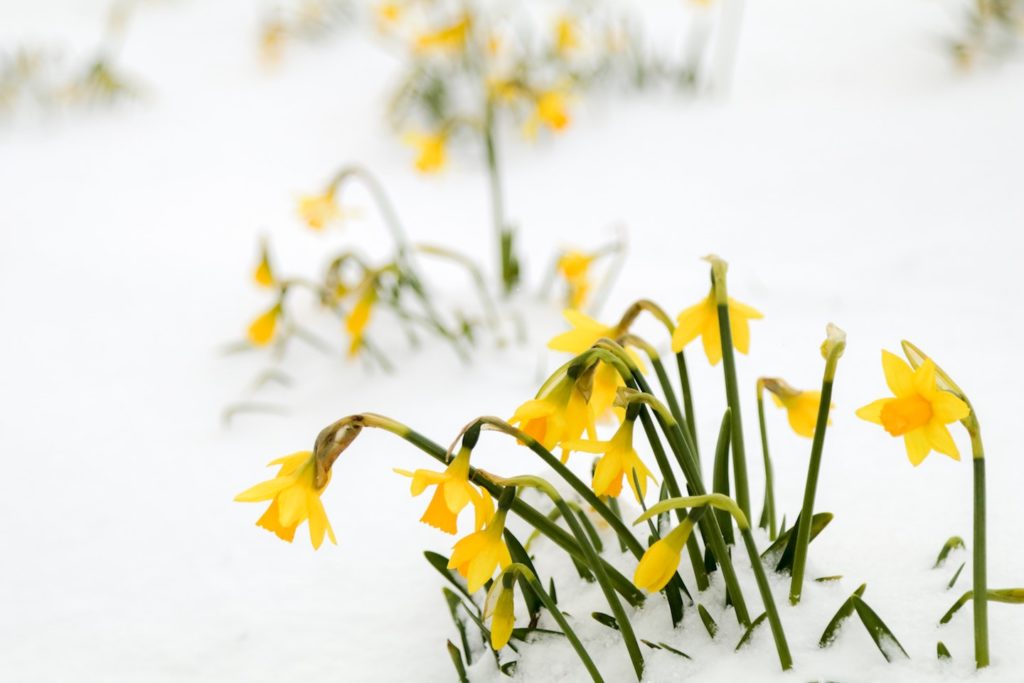
Trust.
It’s not the easiest quality for me to find in these dystopian-feeling days.
So I turned to a fourteenth-century mystic who somehow managed to find hers in the darkest of times.
Julian of Norwich, an anonymous anchoress (recluse) lived during a time in which a third of the population died from the bubonic plague. Julian may have lost her own children. The world reeked of poverty, pestilence, and war. Then, on the brink or her own death, Julian received visions that stayed with her for the rest of her life. She proclaimed:
“All shall be well again.”
Julian spent the remainder of her life living in a cell built into the walls of the Norwich church, with only a window from which to view the world. Not a lifestyle that would appeal to me, but a good way to spend one’s life in prayer and conversation with God.
In researching her famous quote, I learned two things about Julian.
- She didn’t invent the words “All shall be well,” but attributed them directly to God. (I use the word God because that’s the word Julian used, adapt to your preferences.)
- She didn’t use them lightly. Apparently she first had to duke it out with God. “Dude, can’t you see that’s there’s suffering, pain, and evil everywhere? The world is NOT OK and not likely to be getting better soon. How can you possibly say ‘All shall be well?’ “(My paraphrase.)
God was not forthcoming with an answer.
What Julian received instead was a deep sensing, a trust she didn’t have to understand, that the future would bring wellness.
It fueled the remainder of her life.
“All shall be well” might sound like an invitation for passivity, but for Julian, it was an invitation to work. She spent her days writing reflections and helping the locals who came to her cell window for support, consolation or advice.
Is our ship going down?
Many of us today feel the ticking clock of climate change and the imperative to do something before our environmental ship goes under. We watch our core values being mocked, see greed in action, and observe the stalemate of our political systems. After decades of environmental near-complacency, we risk unprecedented disaster.
How can we believe in the wellness of the future and still act?
We have to trust and feel urgency. When we work out of a negative view of the future, we sprinkle gloom into what we do.
Granted, there’s a lot of data that could justify apocalyptic conclusions.
Trust invites us to dig deeper.
It’s not a matter of making a list of the good and the terrible about our prospects and then adding up the results.
Trust invites us to go within ourselves to discover an inner equanimity that doesn’t preclude sorrow or even rage.
Trust is a stand we take, not a conclusion we draw.
Trusting creates an energetic container in which to work with goodwill and hope, collaborate, and look for solutions.
Working hard, with hope
Just today, I read about two positive hope-worthy initiatives (among the thousands out there).
My friend Rondi Lightmark founded the Whole Vashon Project, to give her community a way to “stand up to climate change with creativity and hope,” and showcase the positive work being done. Thus far, over a hundred of local businesses have made green pledges as part of the initiative
76-year-old author, and theologian Matthew Fox teamed up with two activists half his age to create an intergenerational, inclusive community called the Order of the Sacred Earth, inviting people to deepen their commitment to the earth with the vow:
“I promise to be the best lover and defender of the Earth that I can be.” (I signed on.)
Initiatives are everywhere. (What’s inspiring you?)
It’s time to trust and garner hope, without denying our grief.
I still plant oak trees. I wouldn’t do that if I thought the world was like the Titanic.
Staying positive doesn’t require knowing HOW the world will evolve. Julian didn’t.
I can offer no PROOF that “All shall be well.”Julian couldn’t.
I wish I could save the world through my scientific knowledge, medical training or political acumen, but, like Julian, I have none of these.
What I can do is strive for a sense of equanimity and then do what I’m called to do.
Today, I sing in the spirit of Julian’s vision. Here are her words set to music by the late English poet and songster, Sydney Carter, and sung in one of my favorite old recordings by Anna Mayo Muir, Ed Trickett and Gordon Bok,
Join me. It couldn’t be easier to sing.
Loud are the bells of Norwich and the people come and go.
Here by the tower of Julian, I tell them what I know.
Ring out, bells of Norwich, and let the winter come and go
All shall be well again, I know.
Love, like the yellow daffodil, is coming through the snow.
Love, like the yellow daffodil, is Lord of all I know.
Ring out, bells of Norwich, and let the winter come and go
All shall be well again, I know.
Ring for the yellow daffodil, the flower in the snow.
Ring for the yellow daffodil, and tell them what I know.
Ring out, bells of Norwich, and let the winter come and go
All shall be well again, I know.









